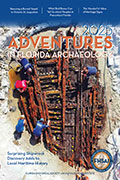Louis “Lou” Boria Jr. was born in Brooklyn, New York, in 1927. A child of Puerto Rican parents, he recalled the contentious racial climate growing up in Brooklyn during the 1930s and early 1940s. He vividly remembered the racially charged statements he received as an adolescent, particularly “F— Puerto Rican this, F— Puerto Rico that,” and how that largely influenced his identity and his decision to join the Marine Corps underage in 1943. Boria served as a rifleman in a Marine Corps platoon throughout World War II, making his first landing at the Battle of Leyte Gulf. In addition to briefly describing his combat experiences, Boria shared stories outside of combat, particularly the racial dynamics between him as a Puerto Rican and his other white and Black military men. During his time in the Pacific Theater, Boria suffered a concussion from incoming mortars while covering shotgun for a Forward Observer. Boria continued his military service through the Korean War, recollecting his combat experience in Kimpo and Seoul and how he trained and mentored a group of Puerto Ricans initially unwilling to do their jobs. Boria withstood another injury in Korea when mortars sent him back about ten feet from where he stood as he radioed in the coordinates of the incoming mortars. A two-time Purple Heart recipient, Boria retired from the Marine Corps in 1957. He explained the various jobs he held during his post-military career, emphasizing how his Puerto Rican ethnic identity influenced such experiences. In 1991, Boria moved to Central Florida in which he outlined his reasons at the end of the conversation. Additionally, he explained how he and others founded the church that currently resides on Welch Road in Apopka, Florida.







